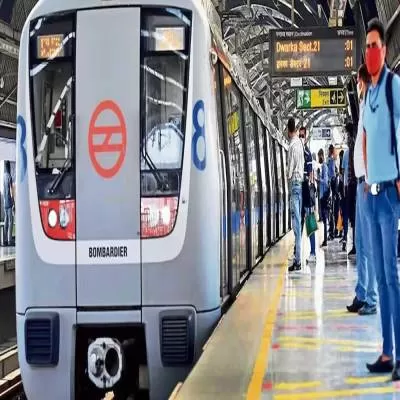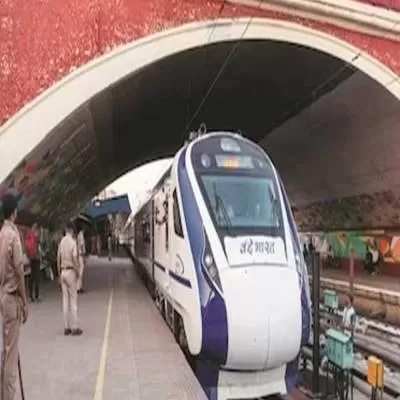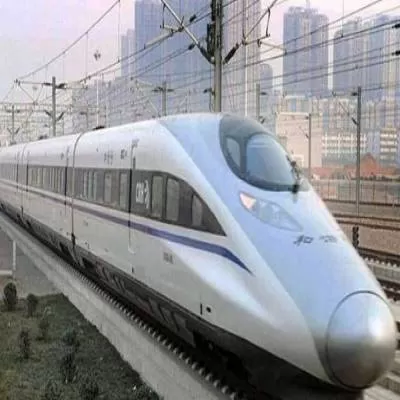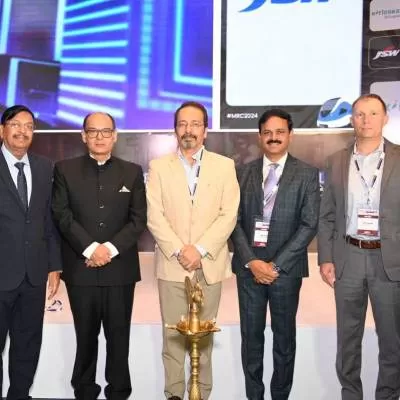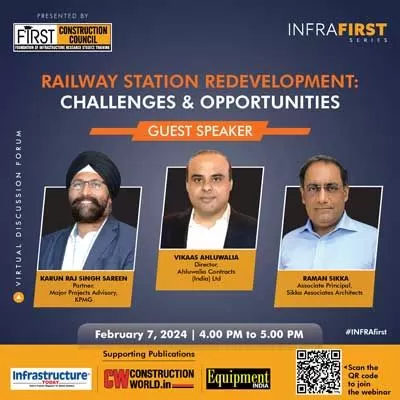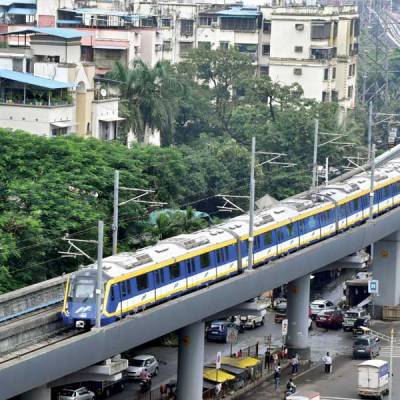- Home
- Infrastructure Transport
- RAILWAYS & METRO RAIL
- The GST Impact Power Road Ports Railways and More...

The GST Impact Power Road Ports Railways and More...
The Goods and Services Tax (GST) is set to replace most of India´s indirect tax system and the impact will be felt across sectors. The GST Bill could boost the infrastructure segment owing to two provisions: Elimination of the cascading impact or ´tax on tax´, and the seamless set-off of input tax owing to continuous input credit flow. Although more clarity on the rate structure, exemptions and procedural details is awaited, the following analysis is based on the current draft.
India´s infrastructure sector largely comprises power, roads, ports, railways and mining segments. The indirect tax regime for each of these is different and the GST would affect each differently. However, the scale and length (time period) of project contracts is a common factor. As most contracts are multi-year and high-value, agreements signed under the current tax regime can overlap with years of the GST regime. Additionally, all projects include two major components: Material and services. Both are taxed at different rates under the current regime but would be taxed at a uniform rate under the GST regime. This poses a significant challenge to ongoing contracts as project costs could change owing to a change in the tax structure. Construction materials used in most projects include steel, cement, wires, cables and bitumen, and costs for these would also change because of the impact of GST on individual items.
The power sector currently does not have an output tax liability, except electricity duty, which is charged by individual state governments. Electricity has been kept out of the ambit of the GST as well. Hence, input taxes on capital expenditure and other supplies such as coal become costs to power companies and are in built in the cost of power. Currently, the power sector procures input material at 2 per cent central sales tax (CST) and pays service tax at 15 per cent. With the proposed GST rate of 18 per cent, the cost of power projects is likely to increase, impacting viability. For operating power plants, the tax on input such as coal for thermal power plants and natural gas for gas-based plants would also change. Currently, for a thermal power plant, linked coal attracts excise duty at 6 per cent, while imported coal attracts customs duty of about 20 per cent. As electricity is outside the ambit of GST, the increase in tax rates will have to be absorbed as cost of operations and the inability to pass it on by way of higher electricity charges could impact profitability. Long-term power purchase agreements that do not have appropriate clauses to pass on this additional tax burden might lose out. Gas-based plants that currently pay value-added tax (VAT) on input gas may also see an increase in operation costs if the GST rate is higher than the VAT rate. Even plants that sell power in the open market might not be able to pass on the increased costs as power rates have been falling.
Owing to the ongoing emphasis and policy actions towards achieving 100-GW renewal energy (RE) by FY22, the Government of India and various states have started adding solar capacity. Solar tariffs in competitive bidding have fallen drastically in recent bids. However, these bids are based on certain tax exemptions provided by the Centre and states. These projects run a risk of becoming unviable if the exemptions are not continued under the GST regime.
Also, non-availability of credit on electricity duty paid is a burden on the industry as it breaks the chain of uninterrupted input credit flow, which is at the core of the GST Bill.
EPC contractors
Currently, EPC contracts (composite or work) are subject to service tax and VAT. Also, dispute and litigations have arisen owing to treatment of a particular contract (it can be treated as contract for supply of material, provision of services or a composite works contract) as service tax is a central tax and VAT is state tax.
Current tax laws also provide for valuation of contracts on composite basis or separately and the tax liability is different for the purpose of service tax payment (either under a regular scheme or after standard deduction). Also, no input credit is available on goods used in the works contract (iron or steel, wires, etc). However, lower input material prices owing to the positive impact of GST would lead to a drop in overall contract costs.
Currently, VAT is also levied on the value of goods used (input credit can be claimed). Individual states provide for composite valuation and tax liability at low rates subject to no input tax credit being taken and no tax invoices being issued.
As there is an overlap of Central and state taxes, these contracts are subject to litigations to determine tax liabilities. With the model GST specifically treating works contracts as supply contracts, these litigations could end. However, as EPC contracts are complexly structured, it would still be a challenge to determine whether a particular contract is a works contract or a supply or a service contract.
The impact of change in tax rates will have to be assessed contract-wise. The model GST Bill also provides - under section 16 (9) - that no credit can be taken on goods and services in the ¨execution of works contract¨, which results in the construction of immovable property, other than plant and machinery. This is similar to the provision in the current tax regime wherein no Cenvat credit is available on inputs used for works contracts. This restriction on availability of input credit can lead to an increase in project costs depending on the type of project.
Road, rail and airport projects
Construction services provided to these segments are exempt from paying service tax. Similarly, composite contracts for supply and services are not works contracts under Section 65 (105) (zzzza) of the Finance Act, 1994. Hence, no service tax is chargeable on works contracts for roads, rail and airports. However, EPC contractors are liable to pay service taxes to transporters as well as states VAT at 10-15 per cent depending on where they are located. The new GST act will not improve the input tax credit availability for these sectors owing to Section 16 (9) mentioned above.
Mining
Mining output is usually exempt from central taxes such as excise duty and only royalty is collected, which is outside the purview of GST. However, taxes need to be paid on input supplies and services used. The impact of GST would be positive if these taxes are lower than current taxes for input supplies and services, while a higher GST rate would have a negative impact on profitability.
The cost of construction would fall as GST would lead to a reduction in overall costs for construction materials such as steel, cement, cables and wires owing to the elimination of the cascading impact and seamless input credit available for set-off. While this would lower project and operational costs, benefits hinge upon the availability of output credit to offset the input credit that comes from the use of these materials.
Cement, steel wires and cables, coal
The current excise duty on cement is 12-14 per cent; coal attracts 6 per cent excise duty, steel wires and cables attract around 12.5 per cent. VAT on these products ranges between 10-15 per cent. These duties would be subsumed by the proposed GST rate of about 18 per cent and lead to lower prices overall. Also, the input credit available to manufacturers would increase and, if passed on to end customers, is likely to result in lower prices. However, for power projects and operational power units currently procuring inputs at lower tax rates, the impact would be negative as electricity is outside the ambit of GST and input tax is a cost. Benefit to other projects would also accrue based on the ability to offset the input credit of these items with the output tax.
Compliance costs
Finally, the benefit of GST would also flow from the ease of compliance it would offer. Elimination of multiple taxes and tax laws is a certainty.
However, EPC contracts spread across multiple states would require contractors to register at multiple states including their site offices owing to the ¨place of supply¨ concept. Also, the site offices will have to be upgraded in terms of technology as input credit would be available only after an online reconciliation of tax invoices.
About the author:
Niraj Rathi is Associate Director-Corporate  Ratings at India Ratings & Research, a Fitch Group company.
Ratings at India Ratings & Research, a Fitch Group company.
NIRAJ RATHI elaborates on the impact of GST across the power, roads, ports, railways, mining and other infrastructure segments. The Goods and Services Tax (GST) is set to replace most of India´s indirect tax system and the impact will be felt across sectors. The GST Bill could boost the infrastructure segment owing to two provisions: Elimination of the cascading impact or ´tax on tax´, and the seamless set-off of input tax owing to continuous input credit flow. Although more clarity on the rate structure, exemptions and procedural details is awaited, the following analysis is based on the current draft. India´s infrastructure sector largely comprises power, roads, ports, railways and mining segments. The indirect tax regime for each of these is different and the GST would affect each differently. However, the scale and length (time period) of project contracts is a common factor. As most contracts are multi-year and high-value, agreements signed under the current tax regime can overlap with years of the GST regime. Additionally, all projects include two major components: Material and services. Both are taxed at different rates under the current regime but would be taxed at a uniform rate under the GST regime. This poses a significant challenge to ongoing contracts as project costs could change owing to a change in the tax structure. Construction materials used in most projects include steel, cement, wires, cables and bitumen, and costs for these would also change because of the impact of GST on individual items. The power sector currently does not have an output tax liability, except electricity duty, which is charged by individual state governments. Electricity has been kept out of the ambit of the GST as well. Hence, input taxes on capital expenditure and other supplies such as coal become costs to power companies and are in built in the cost of power. Currently, the power sector procures input material at 2 per cent central sales tax (CST) and pays service tax at 15 per cent. With the proposed GST rate of 18 per cent, the cost of power projects is likely to increase, impacting viability. For operating power plants, the tax on input such as coal for thermal power plants and natural gas for gas-based plants would also change. Currently, for a thermal power plant, linked coal attracts excise duty at 6 per cent, while imported coal attracts customs duty of about 20 per cent. As electricity is outside the ambit of GST, the increase in tax rates will have to be absorbed as cost of operations and the inability to pass it on by way of higher electricity charges could impact profitability. Long-term power purchase agreements that do not have appropriate clauses to pass on this additional tax burden might lose out. Gas-based plants that currently pay value-added tax (VAT) on input gas may also see an increase in operation costs if the GST rate is higher than the VAT rate. Even plants that sell power in the open market might not be able to pass on the increased costs as power rates have been falling. Owing to the ongoing emphasis and policy actions towards achieving 100-GW renewal energy (RE) by FY22, the Government of India and various states have started adding solar capacity. Solar tariffs in competitive bidding have fallen drastically in recent bids. However, these bids are based on certain tax exemptions provided by the Centre and states. These projects run a risk of becoming unviable if the exemptions are not continued under the GST regime. Also, non-availability of credit on electricity duty paid is a burden on the industry as it breaks the chain of uninterrupted input credit flow, which is at the core of the GST Bill. EPC contractors Currently, EPC contracts (composite or work) are subject to service tax and VAT. Also, dispute and litigations have arisen owing to treatment of a particular contract (it can be treated as contract for supply of material, provision of services or a composite works contract) as service tax is a central tax and VAT is state tax. Current tax laws also provide for valuation of contracts on composite basis or separately and the tax liability is different for the purpose of service tax payment (either under a regular scheme or after standard deduction). Also, no input credit is available on goods used in the works contract (iron or steel, wires, etc). However, lower input material prices owing to the positive impact of GST would lead to a drop in overall contract costs. Currently, VAT is also levied on the value of goods used (input credit can be claimed). Individual states provide for composite valuation and tax liability at low rates subject to no input tax credit being taken and no tax invoices being issued. As there is an overlap of Central and state taxes, these contracts are subject to litigations to determine tax liabilities. With the model GST specifically treating works contracts as supply contracts, these litigations could end. However, as EPC contracts are complexly structured, it would still be a challenge to determine whether a particular contract is a works contract or a supply or a service contract. The impact of change in tax rates will have to be assessed contract-wise. The model GST Bill also provides - under section 16 (9) - that no credit can be taken on goods and services in the ¨execution of works contract¨, which results in the construction of immovable property, other than plant and machinery. This is similar to the provision in the current tax regime wherein no Cenvat credit is available on inputs used for works contracts. This restriction on availability of input credit can lead to an increase in project costs depending on the type of project. Road, rail and airport projects Construction services provided to these segments are exempt from paying service tax. Similarly, composite contracts for supply and services are not works contracts under Section 65 (105) (zzzza) of the Finance Act, 1994. Hence, no service tax is chargeable on works contracts for roads, rail and airports. However, EPC contractors are liable to pay service taxes to transporters as well as states VAT at 10-15 per cent depending on where they are located. The new GST act will not improve the input tax credit availability for these sectors owing to Section 16 (9) mentioned above. Mining Mining output is usually exempt from central taxes such as excise duty and only royalty is collected, which is outside the purview of GST. However, taxes need to be paid on input supplies and services used. The impact of GST would be positive if these taxes are lower than current taxes for input supplies and services, while a higher GST rate would have a negative impact on profitability. The cost of construction would fall as GST would lead to a reduction in overall costs for construction materials such as steel, cement, cables and wires owing to the elimination of the cascading impact and seamless input credit available for set-off. While this would lower project and operational costs, benefits hinge upon the availability of output credit to offset the input credit that comes from the use of these materials. Cement, steel wires and cables, coal The current excise duty on cement is 12-14 per cent; coal attracts 6 per cent excise duty, steel wires and cables attract around 12.5 per cent. VAT on these products ranges between 10-15 per cent. These duties would be subsumed by the proposed GST rate of about 18 per cent and lead to lower prices overall. Also, the input credit available to manufacturers would increase and, if passed on to end customers, is likely to result in lower prices. However, for power projects and operational power units currently procuring inputs at lower tax rates, the impact would be negative as electricity is outside the ambit of GST and input tax is a cost. Benefit to other projects would also accrue based on the ability to offset the input credit of these items with the output tax. Compliance costs Finally, the benefit of GST would also flow from the ease of compliance it would offer. Elimination of multiple taxes and tax laws is a certainty. However, EPC contracts spread across multiple states would require contractors to register at multiple states including their site offices owing to the ¨place of supply¨ concept. Also, the site offices will have to be upgraded in terms of technology as input credit would be available only after an online reconciliation of tax invoices. About the author: Niraj Rathi is Associate Director-Corporate Ratings at India Ratings & Research, a Fitch Group company.


